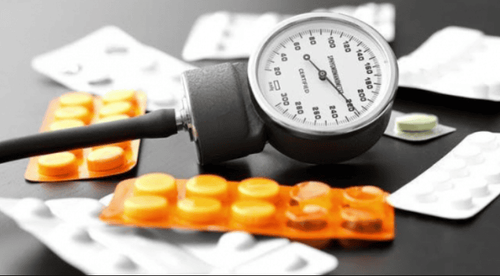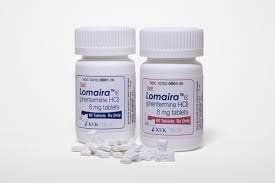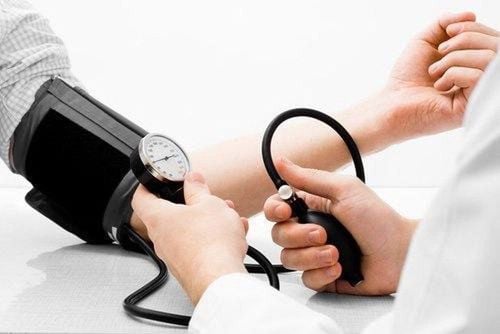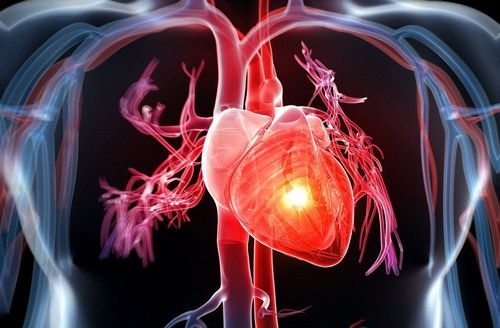This is an automatically translated article.
The article was written by Doctor Luong Vo Quang Dang - Department of Medical Examination & Internal Medicine - Vinmec Phu Quoc International General HospitalHypertension is a common disease globally with more than 1.6 billion people infected and increasing day by day, the control rate of the disease is not high and leaves very serious consequences on the patient's life.
1. Hypertension in Vietnam
In Vietnam, the prevalence of hypertension in the population ranges from 16-23%, which means that 1 out of every 5 adults has hypertension. The control treatment of hypertension today has not achieved high efficiency partly because the disease has a silent progression, few or no symptoms, patients are subjective about their health status and do not comply. good treatment. Increasing awareness and vigilance about hypertension can partly help patients proactively detect hypertension and treat it earlier.2. How to understand the blood pressure index?
Blood pressure is the pressure created when the heart contracts to push blood through the blood vessels (arteries). High blood pressure occurs when the force exerted on the walls of the blood vessels is higher than normal, which means that the heart has to work harder and the blood vessels are under more pressure. This is a major risk factor for heart disease, stroke and other serious illnesses. In medicine, we often refer to this high blood pressure condition as ‘Hypertension’.Your blood pressure reading consists of 2 numbers, one 'above' the other – eg 140/80. A higher number (called systolic pressure) reflects the pressure inside the arteries when the heart is pumping blood. The smaller number (called the diastolic pressure) reflects the pressure inside the arteries as the heart relaxes between beats. The unit of measurement for blood pressure is millimeters of mercury (mm Hg).
A high blood pressure reading at one reading does not mean you have hypertension. Our blood pressure changes throughout the day. When you're nervous, stressed, or you've just finished exercising, it can also cause your blood pressure to go higher for a short period of time. When you sleep or rest, your blood pressure will drop to a lower level.
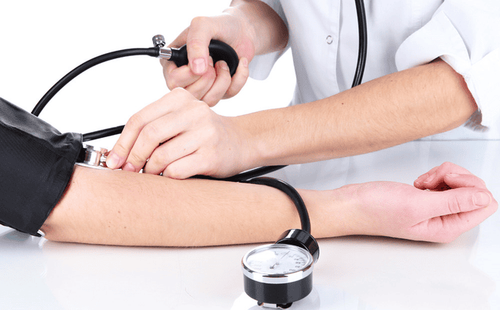
3. What are the symptoms of high blood pressure?
Most people with high blood pressure do not know they have it until the dangerous complications of high blood pressure, such as heart attack and stroke, occur. It is for this reason that hypertension is referred to as a "silent killer".We can only detect hypertension if we measure our blood pressure regularly or when we go to the doctor for other reasons and we have our blood pressure checked at the same time. Sometimes, blood pressure rises too high, you will have headaches, even dizziness and blurred vision.
In addition to high blood pressure, when doing clinical examination, doctors often do not detect any other signs. Chronic or very high blood pressure can also cause changes in the blood vessels in the back of the eye that cause blurred vision.
4. How is high blood pressure diagnosed?
You will be diagnosed with hypertension if your blood pressure readings have been recorded as high on multiple measurements, at different times, and remain elevated even when you are relaxed or resting.Hypertension is diagnosed when the blood pressure reading is 140/90 mm Hg or higher in the clinic or hospital, or the average of the readings is higher than 135/85 mm Hg when measuring blood pressure at home or when measuring with a portable blood pressure monitor. If these blood pressure readings continue to remain above these thresholds, you have high blood pressure.
If your blood pressure is only high for a certain time and it is not too high, your doctor will not diagnose you with high blood pressure. The doctor needs to base on the average readings of blood pressure measurements at home or measured with an ambulatory blood pressure monitor. People with suspected hypertension are often encouraged to document their blood pressure readings away from the clinic or medical facility.
The reason is because some people will feel anxious when going to the doctor and it is also a contributing factor to high blood pressure. This is called white coat hypertension. Therefore, measuring your blood pressure at home or using a portable blood pressure monitor will record your real blood pressure readings when you are relaxed and less anxious.
5. Why is high blood pressure a concern?
High blood pressure is a risk factor for serious health problems in the future. If you have high blood pressure over the years, your blood vessel walls will gradually become damaged and your heart will have to work with a heavy burden on it regularly. In general, the higher the blood pressure, the greater the health risk.Having cardiovascular diseases is the greatest risk when having high blood pressure, including diseases of the heart muscle, or the entire vascular system caused by atherosclerosis. Atherosclerotic plaques are like small fatty patches that form between the layers of the walls of blood vessels (arteries). Atherosclerosis causes the walls of the arteries to become progressively thicker, stiffer, and less elastic.
Cardiovascular diseases caused by atherosclerotic disease include
Angina pectoris. Myocardial infarction Stroke Transient ischemic attack Peripheral artery disease

Diabetes, both type 1 and type 2. However, it is more common in patients with type 2 diabetes.
Family history of hypertension
Diet There are many risks in drinking and living activities, specifically:
Overweight, obesity Eating salty, high salt Sedentary, No exercise Drinking a lot of alcohol A lot of stress
6. How to measure blood pressure correctly?
The first blood pressure measurement is usually done in a clinic or medical facility. If it is recorded only once with a high score, doctors and nurses often advise the patient to self-monitor and record for a while. This means that blood pressure needs to be measured several times at different times and spaced apart. How often you monitor your blood pressure depends on your initial blood pressure readings and the health risks you may have.7. Home blood pressure readings
You may be advised by your doctor to purchase a blood pressure monitor to actively monitor your blood pressure at home.Blood pressure should be measured while sitting and resting, relaxing at home, using a standard blood pressure monitor. You should measure 2 times per day for 1 week. From there, you have 14 systolic readings and 14 diastolic readings, and then averaging the 14 systolic and 14 diastolic readings, we get the average number of blood pressure. It is normal for blood pressure to fluctuate or change between measurements, so if during a certain measurement, the blood pressure readings increase but not too high, then you do not need to be too worried.

9. Blood pressure readings are measured by ambulatory sphygmomanometers
Those are blood pressure readings that are automatically recorded every 15 or 30 minutes while you are still active and working normally. You only need to wear a small device and have a cuff on your arm to measure blood pressure readings, usually within 24 hours.Average readings of Blood Pressure recorded by ambulatory monitors that most faithfully reflect your blood pressure status. If there is no portable blood pressure monitor, we will replace it by measuring blood pressure many times at home. Ambulatory and home blood pressure readings are often, sometimes much, much lower than those measured in a clinic or hospital. The reason for this is that we often feel more comfortable, relaxed and less stressed when measuring blood pressure at home.
10 How to treat high blood pressure?
If you have been diagnosed with high blood pressure, your doctor may recommend some basic tests before starting treatment, such as:Urinalysis to check for protein or blood in the urine. Blood tests check kidney function, blood fats, and blood sugar. Electrocardiogram (ECG) Examination The purpose of these examinations and tests is to:
Rule out (or diagnose) secondary causes of high blood pressure, such as kidney disease. Check to see if high blood pressure is affecting the heart. Check for other risk factors such as high cholesterol or diabetes.
11. Can I lower my blood pressure without medication?
Making lifestyle, activity, and exercise changes can sometimes help a lot, and for some people, it can even help them go without medication. Specifically:Lose weight if you are overweight Eat light, reduce salt intake Regular exercise Stopping smoking does not reduce blood pressure, but smoking combined with high blood pressure will increase the risks. cardiovascular muscle. So, if you quit smoking, you will reduce your risk of stroke, heart attack, etc.
12. What if I need to take medicine to control my blood pressure?
There are many different drugs that work through different mechanisms to make blood pressure more stable. Therefore, your doctor will advise the most suitable type for you. If the medication isn't working optimally, or it's causing side effects, there are other medication options available to you.Ideally, find one or more medications that work for you and keep your blood pressure under control. Once you have found the right medicine, you need to maintain it for a long time to ensure the best blood pressure control. Arbitrarily stopping blood pressure medication can cause uncontrolled high blood pressure, continued organ damage from prolonged high blood pressure, and unreduced risk of serious complications.
And an indispensable thing is that you need to check your blood pressure regularly during treatment and have regular check-ups so that the doctors can adjust the medicine if necessary.
Currently, Vinmec Phu Quoc International General Hospital is providing basic and specialized screening packages for Hypertension. This is especially useful for patients with known hypertension, either treated or under treatment, but whose systemic effects are unknown. With a thorough and dedicated examination and consultation of cardiologists on the results of in-depth tests and investigations, meeting international standards, we will help you determine your standing position. on the way to accompany hypertension.
To achieve the highest treatment effectiveness, minimal side effects and minimize the complications of hypertension, no one else but yourself is the one who takes the initiative, with the help of medical staff from the hospital. Vinmec International General Hospital.
Please dial HOTLINE for more information or register for an appointment HERE. Download MyVinmec app to make appointments faster and to manage your bookings easily.





